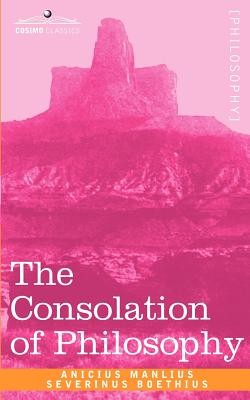
- We will send in 10–14 business days.
- Author: Anicius Manlius Severinus Boethius
- Publisher: Cosimo Classics
- Year: 2007
- Pages: 132
- ISBN-10: 1602064490
- ISBN-13: 9781602064492
- Format: 12.7 x 20.3 x 0.8 cm, minkšti viršeliai
- Language: English
- SAVE -10% with code: EXTRA
Reviews
Description
"The lions of Carthage, though they bear the gorgeous bonds and trappings of captivity, and eat the food that is given them by hand, and though they fear their harsh master with his lash they know so well; yet if once blood has touched their bristling jaws, their old, their latent wills return; with deep roaring they remember their old selves; they loose their bands and free their necks, and their tamer is the first torn by their cruel teeth, and his blood is poured out by their rage and wrath. ¿from Book III The Consolation of Philosophy was the single most popular book (after the Bible) during the Middle Ages. It is written as a conversation between Boethius and the spirit of Philosophy in the form of a beautiful woman. Boethius, imprisoned, tells Philosophy of his frustration and despair. She responds with compassionate teaching, preaching detachment and reminding Boethius that he must accept that Fortune¿s Wheel turns for all. Readers interested in the history of Christian thought and students of the Middle Ages will want to read this influential, classic work of Christian philosophy. Roman philosopher ANICIUS MANLIUS SEVERINUS BOETHIUS (c. 480¿524) was a scholar, translator, and Christian thinker whose influence was still widely felt a thousand years after his death. He preserved classic works by Aristotle, Plato, and others by translating them into Latin. His translations of Greek texts on mathematics, geometry, music, and astronomy were used in universities for hundreds of years. He was not able to complete all of his ambitious projects before his execution in 524 by Theodoric the Great, whom he had served for many years. "
- Author: Anicius Manlius Severinus Boethius
- Publisher: Cosimo Classics
- Year: 2007
- Pages: 132
- ISBN-10: 1602064490
- ISBN-13: 9781602064492
- Format: 12.7 x 20.3 x 0.8 cm, minkšti viršeliai
- Language: English English
"The lions of Carthage, though they bear the gorgeous bonds and trappings of captivity, and eat the food that is given them by hand, and though they fear their harsh master with his lash they know so well; yet if once blood has touched their bristling jaws, their old, their latent wills return; with deep roaring they remember their old selves; they loose their bands and free their necks, and their tamer is the first torn by their cruel teeth, and his blood is poured out by their rage and wrath. ¿from Book III The Consolation of Philosophy was the single most popular book (after the Bible) during the Middle Ages. It is written as a conversation between Boethius and the spirit of Philosophy in the form of a beautiful woman. Boethius, imprisoned, tells Philosophy of his frustration and despair. She responds with compassionate teaching, preaching detachment and reminding Boethius that he must accept that Fortune¿s Wheel turns for all. Readers interested in the history of Christian thought and students of the Middle Ages will want to read this influential, classic work of Christian philosophy. Roman philosopher ANICIUS MANLIUS SEVERINUS BOETHIUS (c. 480¿524) was a scholar, translator, and Christian thinker whose influence was still widely felt a thousand years after his death. He preserved classic works by Aristotle, Plato, and others by translating them into Latin. His translations of Greek texts on mathematics, geometry, music, and astronomy were used in universities for hundreds of years. He was not able to complete all of his ambitious projects before his execution in 524 by Theodoric the Great, whom he had served for many years. "


Reviews